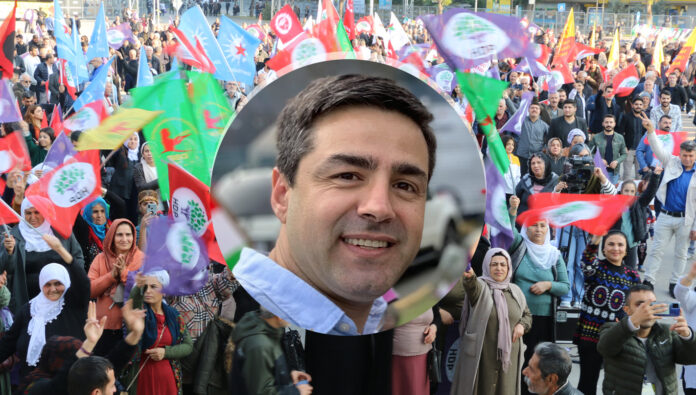Mem Husedin
Turks have a proverb, “Alavere dalavere Kürd Memed nöbete,” which translates roughly as “Send Kurdish Mehmed to duty with trickery.” This expression dates back to a time when Kurdish soldiers conscripted into the Turkish army, who often spoke only Kurdish, were unfamiliar with Turkish commands. Deceived by their Turkish counterparts, these soldiers were repeatedly assigned undesirable duties. Turks viewed this as a sign of Kurdish naivety, but for Kurds, it reinforced a sense of isolation and mistrust, knowing they were among people indifferent, if not hostile, to their identity.
Today, this proverb still resonates as we witness Turkish officials offering gestures of peace to Kurdish leaders. Under the guise of shared goals, these overtures ultimately serve Turkish interests alone.
Recently, in the Turkish parliament, the leader of the nationalist MHP, Devlet Bahçeli, approached the leader of the ‘pro-Kurdish’ DEM Party and shook his hand. Bahçeli followed this by calling on the imprisoned PKK leader to “denounce terrorism, announce his militants should give up arms, so that peace could be achieved within Turkey.” Turkish President Erdoğan echoed this by inviting his “Kurdish Muslim brothers” to “stand with Turks against Israel at this historic time.”
To lighten this heavy reality, here’s a joke about the relationship between Turks and Kurds:
Two inmates on death row, a Kurd and a Turk, are asked their final wishes. The Kurd says he wants to see his mother. When asked his wish, the Turk replies that he does not want the Kurd to see his mother.
On the surface, Turkey may appear to be a republic where all citizens are equal. But in practice, Turkey remains a nationalist state, where only the Turkish identity is officially recognized, and even this only nominally extends to Christian minorities. Rarely do Turkey’s western allies in NATO and the EU, who value Turkey’s strategic position, address the racism embedded within its founding ideology. As Turkey’s guiding texts suggest, the land within Turkey’s borders is Türk Yurdu, or “Land of Turks,” much like the Nazis’ term Lebensraum for German “living space.” Both ideologies, born around the same time during Germany and Turkey’s early 20th-century alliance, aimed to justify domination and cultural erasure in the name of nationhood.
Fast forward to today. Nazi Germany was defeated along with its racist ideology, yet a form of this ideology endures in Turkey. However, being a more fluid concept than the Nazi identity, the “Turkish identity” allows any Muslim of Ottoman descent to claim it, though no true space is offered to Kurds as Kurds. Those who refuse to adopt the Turkish identity face erasure within Türk Yurdu.
Despite this enduring nationalist agenda, the Turkish government continues to summon “Kurdish Mehmed” to serve its goals, whether against Israel, the United States, or any other perceived enemy. However, I suggest Kurds prioritize partnerships that respect Kurdish autonomy and are willing to support our aspirations for Kurdistan. We have no dispute over Kurdistan with Israel or the USA, and if such alliances advance our quest for sovereignty, they are steps in the right direction.





